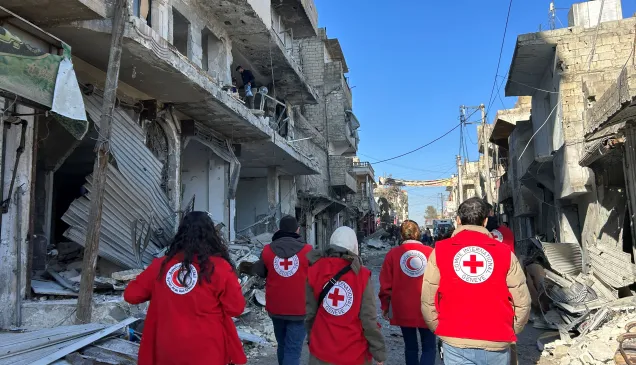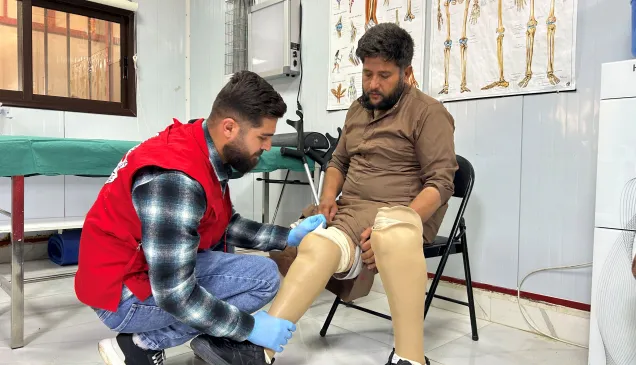From dilapidated buildings to broken down roads, destruction haunts each and every corner in Eastern Ghouta.
Amid the destruction in Eastern Ghouta, photos speak volumes
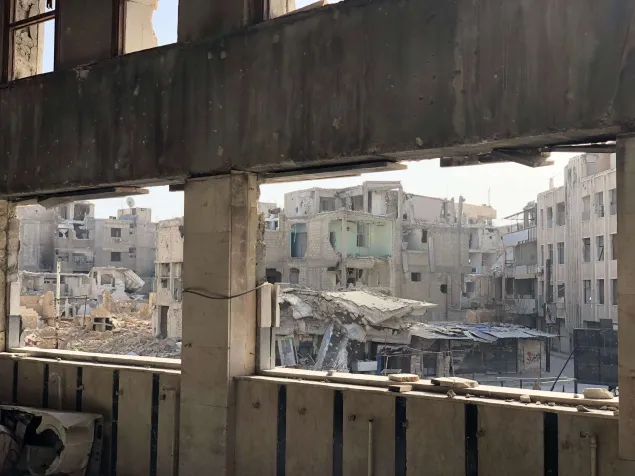
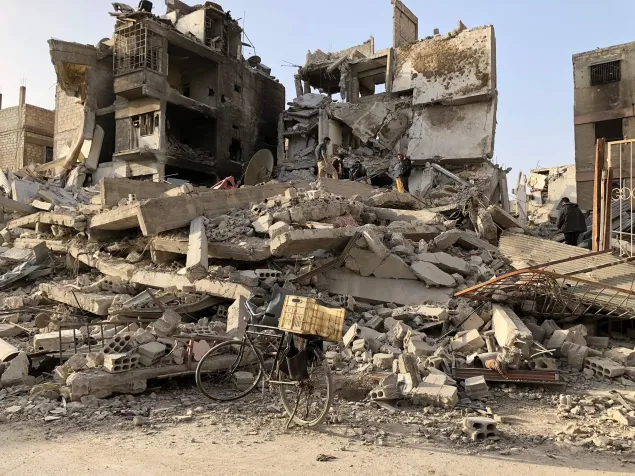
People are struggling to survive living in underground shelters under the rubble of their own homes.
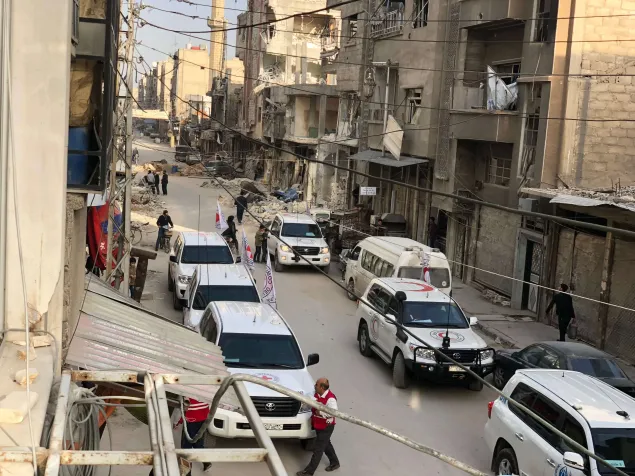
Our team in Syria entered Eastern Ghouta to deliver aid on 5 March 2018. The last time the ICRC had access was in November 2017.
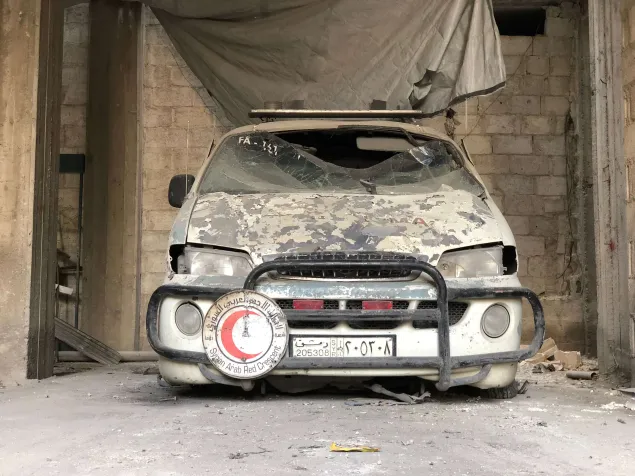
Health facilities and vehicles have also been targeted during the past several years of conflict.
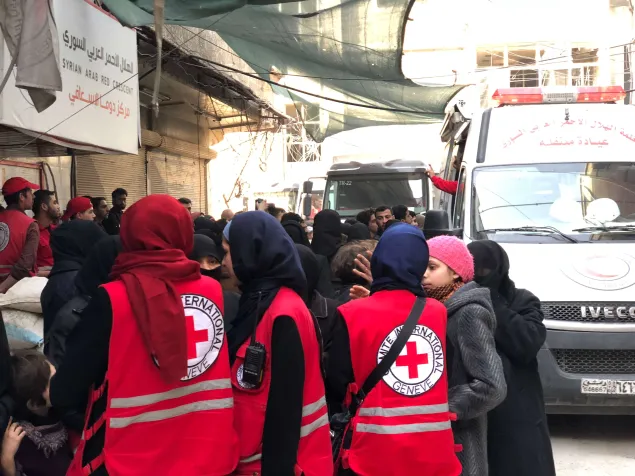
"The convoy is a positive first step and will lessen the immediate suffering of some civilians in the Eastern Ghouta region. But one convoy, however big, will never be enough given the dire conditions and shortages people are facing," said Robert Mardini, the ICRC's Middle East director.
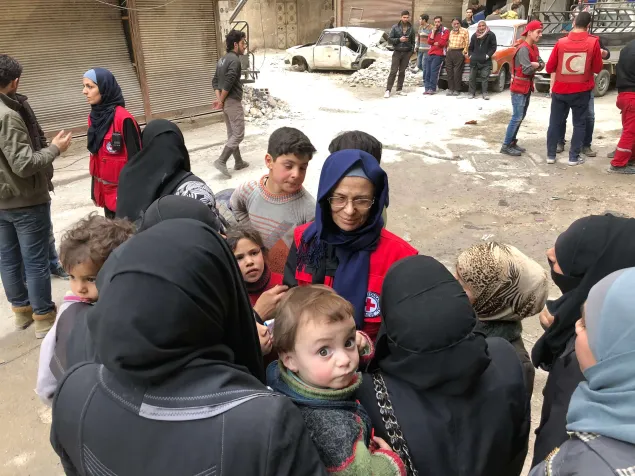
The people in Eastern Ghouta are desperately in need of almost everything. The 46-truck convoy included 5,500 food parcels for over 27,500 people, along with vital medical and surgical items such as dressing materials.
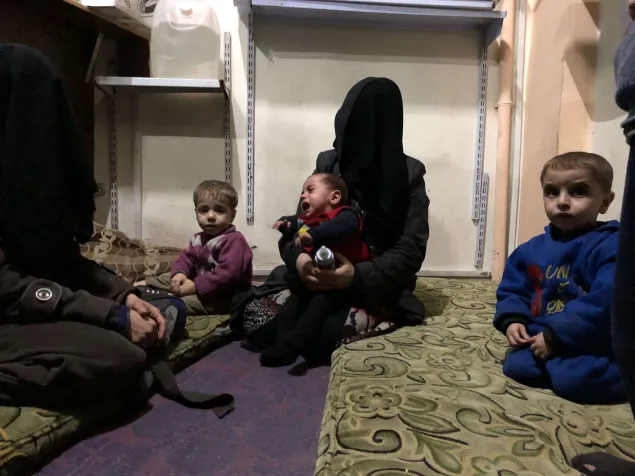
Living in underground shelters, some children do not see sunlight for 15 to 20 days at a stretch.
In Eastern Ghouta, constant shelling has forced families to live in an atmosphere of neverending fear. Many have resorted to hiding in shelters underground in a desperate attempt to stay alive – with little food to sustain them.
Our team in Damascus entered Douma on 5 March 2018 to deliver much needed aid to try and lessen some of the immediate suffering of the people living there.
The ICRC has repeatedly called for all sides in Syria to respect the laws of war, which are being ignored.
We again urge parties involved in the conflict to take every precaution to spare and protect civilians.

